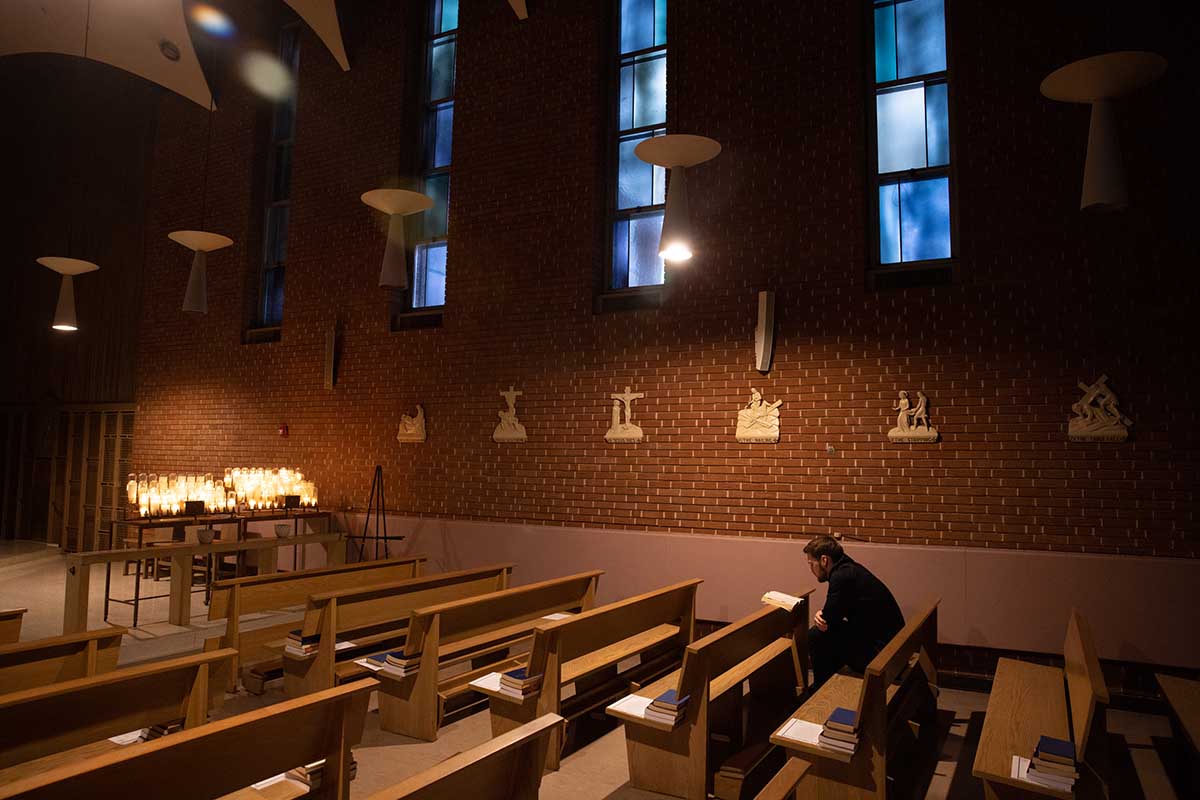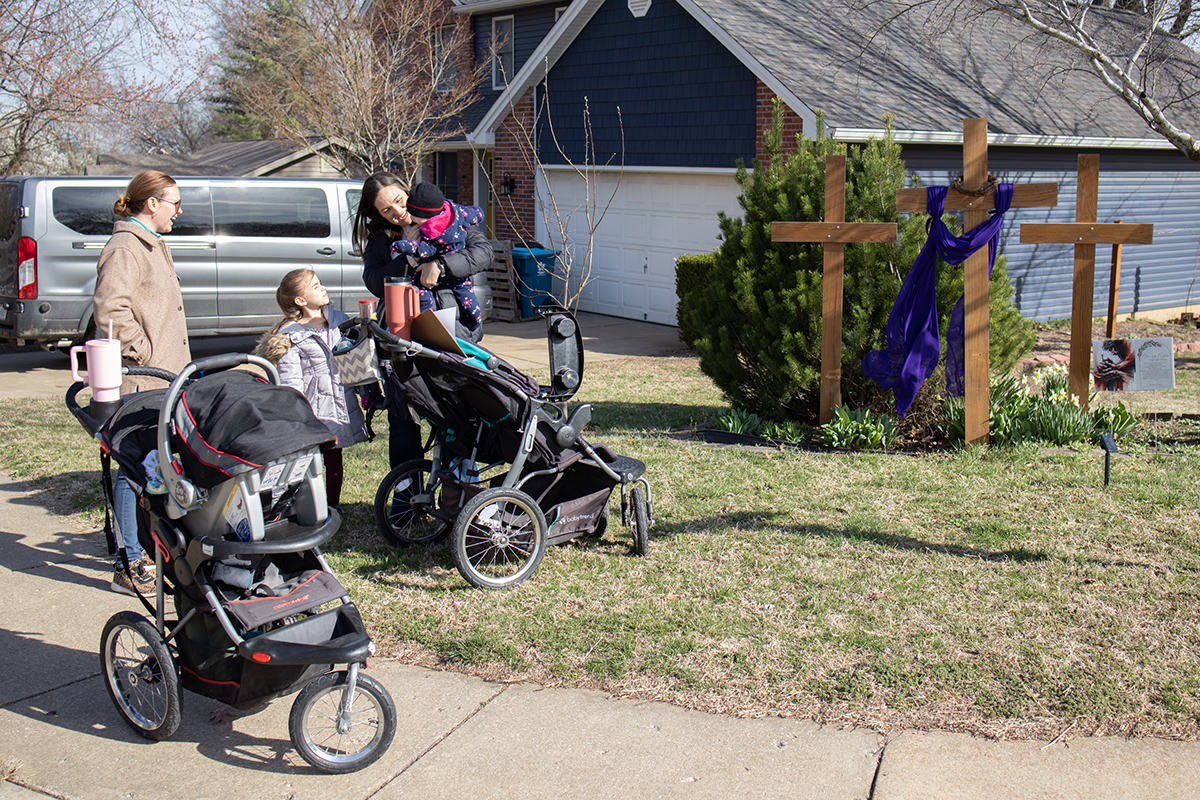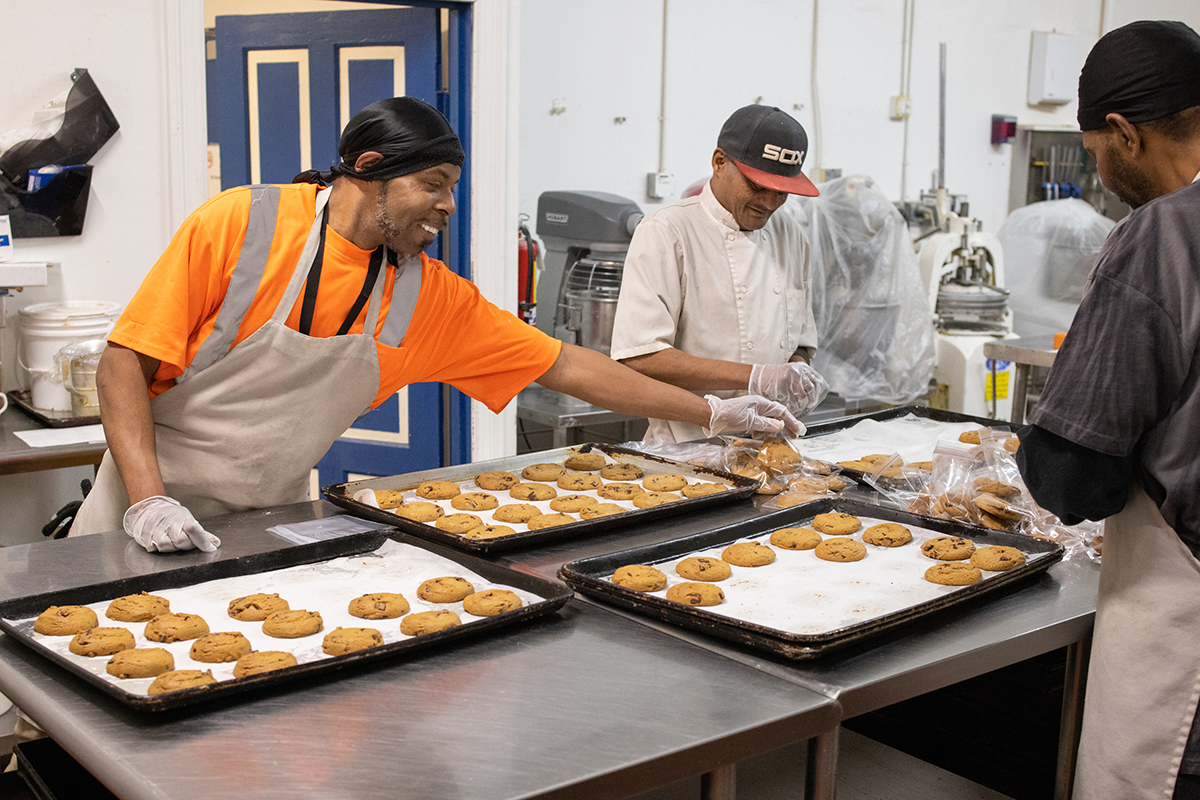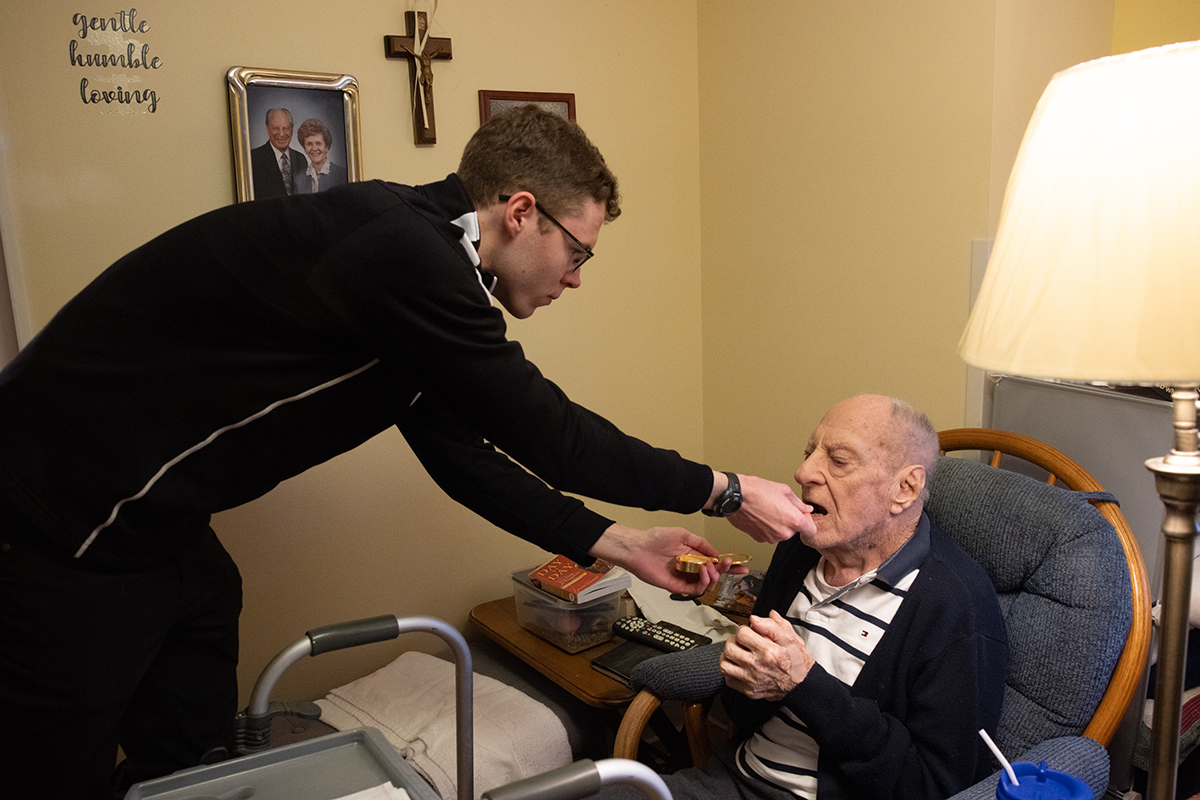Pentecost recognizes the gift of the Holy Spirit to the Church
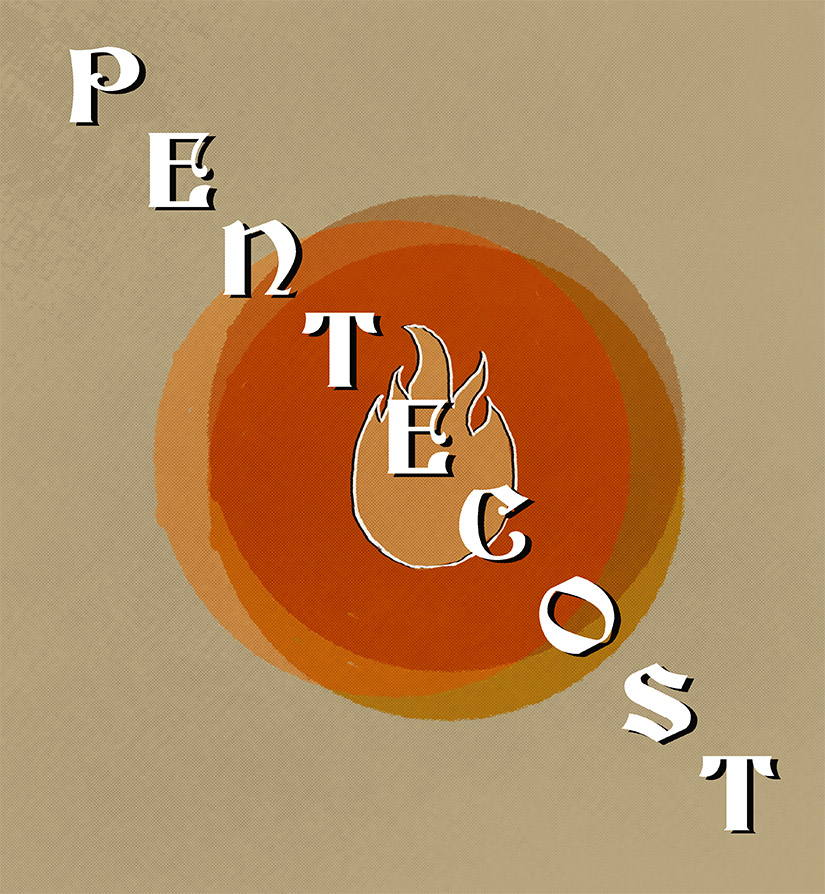
Pentecost, celebrated May 23 this year, gives us the gift of the Holy Spirit to go out and share the Good News of Jesus with others
As the feast of Pentecost approaches (May 23 this year), what do we know about the Holy Spirit and how is He working in our lives, thousands of years after the first Pentecost?

Jane Guenther, director of the of the Catholic Renewal Center, often jokes that nowhere in Scripture does it say that we’re to believe in two Persons of the Trinity and one dove. “It makes people laugh, but it breaks the idea that somehow the Holy Spirit is something so nebulous and unapproachable,” she said. “It creates this desire to see the Holy Spirit as a person — our advocate, our counselor, our comforter.”
What is Pentecost?
Pentecost is a feast of the Church that celebrates the third person of the Triune God — the Holy Spirit, which descended upon the first disciples of Jesus.
Pentecost concludes the Easter Season. It occurs 50 days after the death and resurrection of Jesus, and 10 days after His ascension into heaven.
The name comes from the Greek word pentecoste, which means 50th. In the Jewish tradition, there is a parallel holiday, Shavu’ot, which falls 50 days after Passover. Shavu’ot is sometimes called the festival of weeks, referring to the seven weeks since Passover.
In the story of how the Holy Spirit descended upon the first Christians, a “strong, driving” wind filled the room where the apostles were gathered, and tongues of fire came to rest on their heads, allowing them to speak in different languages so that they could understand each other. Some people thought these early Christians were just drunk, but as Peter described in the Acts of the Apostles, this occurred in the morning and was the work of the Holy Spirit.
The Holy Spirit also gave the apostles the other gifts that were needed to go out and preach the Gospel to all nations. It fulfills Christ’s promise that the Apostles would be “clothed with power” before going out to spread the Gospel (Luke 24:46-49).
Some consider Pentecost to be the Catholic Church’s “birthday.” After the Holy Spirit came upon the apostles, Peter, the Church’s first pope, was inspired by the Holy Spirit to preach to Jews and other non-believers, in which he opened the Scriptures of the Old Testament, showing how the prophet Joel prophesied events and the coming of the Holy Spirit at Pentecost.
He also told the people that the Jesus they crucified is the Lord and was raised from the dead, which “cut them to the heart.” Peter exhorted them to repent of their sins and to be baptized. According to the Acts of the Apostles, about 3,000 people were baptized following Peter’s preaching.
How is the Holy Spirit working in our lives now?

People have the ability to see how Jesus is living in our midst every day, said Auxiliary Bishop Robert Hermann, who serves as a liaison for the Catholic Renewal Center.
Citing a line from Jesuit Father David Meconi’s book, “Christ Unfurled,” he said, “the Church teaches us today that the good sense of the believer never separated Christ from His Church, the head from His body. This reality helps us better understand that the apostles and their immediate successors had no greater access to our Lord Jesus Christ than we do today.”
Throughout the centuries, long after Christ had risen, He remained alive in the midst of the people who brought Him to light and to witness to others and evangelize.
“Christ is using us every day to be His intercessors,” Bishop Hermann said. “Every good deed we do, Christ uses that. It doesn’t go to waste, and He uses that to save souls. That’s an exciting thing to know — that Jesus uses ‘klutzes’ like us and does that to save souls.”
Jesus’ eucharistic presence and the Holy Spirit
Do we allow ourselves to give the Holy Spirit the room to work in our lives? It’s possible, if we have the ability to surrender our heart to Jesus. How can we do that? One way is through Jesus’ eucharistic presence.
“When we come into the silence of the Tabernacle, the eucharistic presence of Christ comes out and into our hearts to absorb all of the things that are distractions in our lives — our anger, our resentment, the memories of what happened yesterday,” Bishop Hermann said. “It’s in that quiet that we become aware of the person of Jesus. If we can teach people who use the eucharistic presence to become quiet and absorb the noise in our lives — that’s when God can speak to us.”
When we give the Holy Spirit the freedom to come into our lives and surrender our lives to Him, then we are excited to share the Good news with others. “It’s so spontaneous,” he said. “That’s how the Spirit should be released in all of us. Once the Holy Spirit turns us loose, then it is no longer a ‘chore’ to evangelize; it’s something you can’t stop from doing.”
Pentecost in the Bible
The Coming of the Spirit
When the time for Pentecost was fulfilled, they were all in one place together. And suddenly there came from the sky a noise like a strong
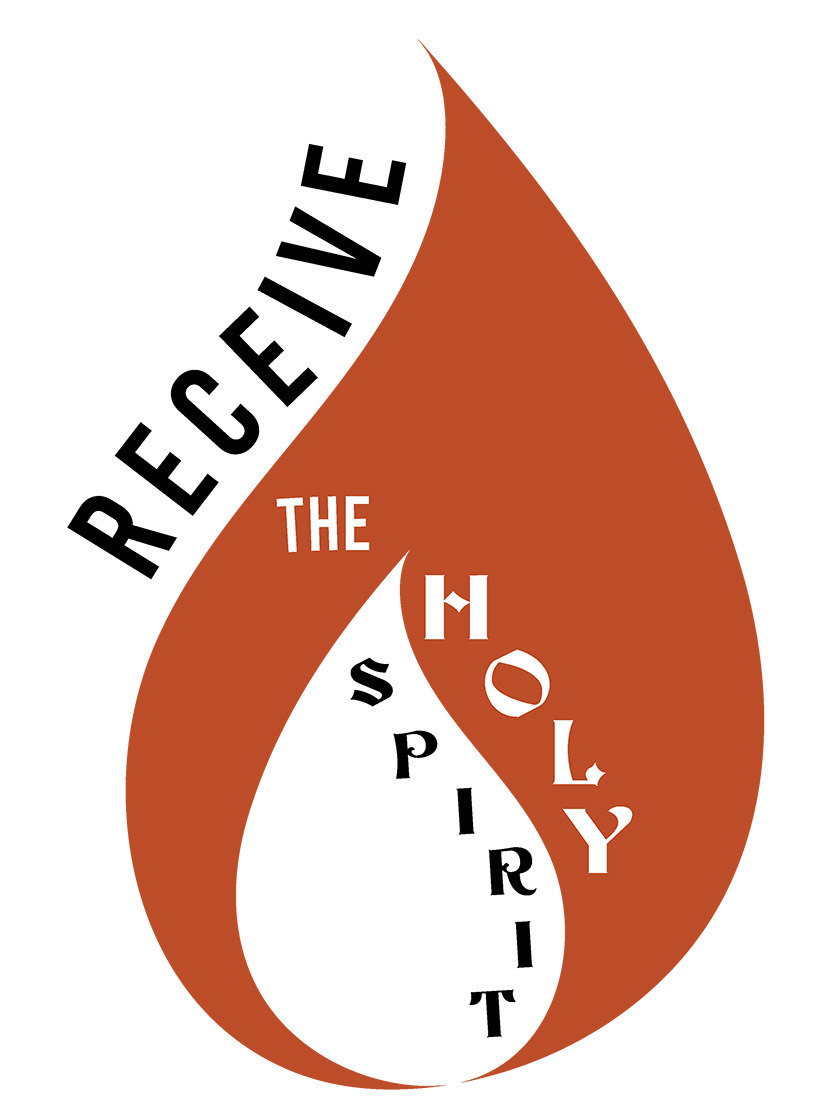
driving wind, and it filled the entire house in which they were.
Then there appeared to them tongues as of fire, which parted and came to rest on each one of them. And they were all filled with the Holy Spirit and began to speak in different tongues, as the Spirit enabled them to proclaim.
Now there were devout Jews from every nation under heaven staying in Jerusalem. At this sound, they gathered in a large crowd, but they were confused because each one heard them speaking in his own language.
They were astounded, and in amazement they asked, “Are not all these people who are speaking Galileans? Then how does each of us hear them in his own native language?
“We are Parthians, Medes, and Elamites, inhabitants of Mesopotamia, Judea and Cappadocia, Pontus and Asia, Phrygia and Pamphylia, Egypt and the districts of Libya near Cyrene, as well as travelers from Rome, both Jews and converts to Judaism, Cretans and Arabs, yet we hear them speaking in our own tongues of the mighty acts of God.”
They were all astounded and bewildered, and said to one another, “What does this mean?”
But others said, scoffing, “They have had too much new wine.”
Peter’s Speech at Pentecost
Then Peter stood up with the Eleven, raised his voice, and proclaimed to them, “You who are Jews, indeed all of you staying in Jerusalem. Let this be known to you, and listen to my words. These people are not drunk, as you suppose, for it is only nine o’clock in the morning. …
Peter (said) to them, “Repent and be baptized, every one of you, in the name of Jesus Christ for the forgiveness of your sins; and you will receive the gift of the holy Spirit. For the promise is made to you and to your children and to all those far off, whomever the Lord our God will call.” He testified with many other argu
As the feast of Pentecost approaches (May 23 this year), what do we know about the Holy Spirit and how is He working in our lives, thousands of years after … Pentecost recognizes the gift of the Holy Spirit to the Church
Subscribe to Read All St. Louis Review Stories
All readers receive 5 stories to read free per month. After that, readers will need to be logged in.
If you are currently receive the St. Louis Review at your home or office, please send your name and address (and subscriber id if you know it) to subscriptions@stlouisreview.com to get your login information.
If you are not currently a subscriber to the St. Louis Review, please contact subscriptions@stlouisreview.com for information on how to subscribe.

